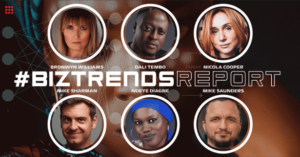Data-driven marketing has emerged as a linchpin for organisations aiming to build scalable and robust marketing strategies. At the heart of this approach lies the invaluable asset known as 1st Party Data. While the concept is not new, its importance has reached critical levels as businesses realise the need to prioritise and harness this data for their benefit.
Understanding the Burning Platform
In the quest to connect with customers effectively, many businesses have become overly reliant on media companies (and other 3rd Parties) to access customer data. This dependency creates a costly, cyclical marketing platform that places companies and brands at the mercy of platform giants like Meta and Google. The lack of direct access to customer data makes it challenging to reach customers succinctly, hindering opportunities for growth and expansion.

The Hotel Industry’s Hard Lessons
The hotel industry is a poignant example of the detrimental effects of relying on third-party intermediaries, such as Online Travel Agencies (OTA’s), for lead generation. These OTA’s often charge exorbitant commission fees, eroding the hotel’s profitability and weakening their control over the customer journey. The consequences of not having direct access to customer data are glaring, as hotels find themselves at the mercy of OTAs or solely dependent on Google and Facebook ads to attract customers.
The Pattern is Everywhere
In many industries, limited access to customer data is prevalent. The travel and tourism sector, including airlines, tour operators, and travel agencies, grapples with customer data ownership due to dependence on intermediaries and booking platforms. Similarly, e-commerce businesses heavily rely on third-party marketplaces like Take-a-lot, Amazon or eBay, sacrificing direct customer relationships in exchange for access to a broad customer base. Online service providers, such as streaming platforms and software companies, face hurdles in capturing customer data when relying on app stores for distribution and billing. Financial institutions, media and publishing companies, and educational institutions also confront obstacles in understanding their audiences and customers when relying on third-party platforms for data collection and engagement metrics. The pattern of dependence on third-party players and the urgent need to prioritise 1st Party Data and CRM strategies is evident across various sectors.
The Time to Prioritise 1st Party Data is Upon Us.
As the digital landscape evolves, businesses must recognise that prioritising 1st Party Data is no longer optional but imperative. Failure to do so disadvantages businesses, giving competitors who prioritise their data strategies a significant edge. Building a robust Customer Relationship Management (CRM) system becomes the cornerstone of a 1st Party Data strategy, allowing businesses to understand better, organise, and study their customers.
Struggles with CRM Implementation
While being “customer-centred” has become a corporate mantra, implementation lags due mainly to a short-termism culture. Early results from our State of Digital Survey indicate that 60% of businesses are either ineffectively implementing or not implementing CRM systems. This disparity highlights the disconnect between the desire to prioritise customers and the actual execution of a data-driven strategy.
Taking Charge of Your Business’s Future
Organisations must seize control of their data destiny to put the customer at the centre of their business truly. Investing in a robust CRM system and focusing on 1st Party Data empowers enterprises to develop a deep understanding of their customers, leading to enhanced customer experiences and increased loyalty.
I digress; yes, I presented a keynote on this at The Associations Indaba yesterday, and it was a blast. I had a great time sharing this message and hopefully helping a few more organisations closer towards their 1st party CRM data strategy.
Businesses that fail to embrace the power of 1st Party Data and CRM systems risk losing control of their markets and falling behind competitors who prioritise their data strategies. It’s time to heed the call and put the customer at the heart of our businesses by harnessing the power of 1st Party Data for a brighter, more customer-centric future.






